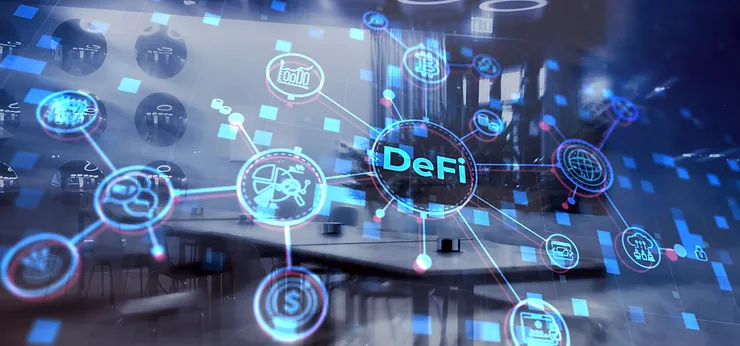Since the advent of Bitcoin in 2009 and Satoshi Nakamoto’s revolutionary use of blockchain technology to create the first cryptocurrency, crypto finance has experienced a series of booms and busts, generating polarized perspectives on the future of decentralized finance (DeFi). Investors, observers, and analysts harbor a wide variety of emotions regarding this unique and still nascent financial environment. Some are staunch believers in DeFi’s potential, others view it as the biggest scam ever invented, and many adopt a balanced perspective, recognizing both the promise and the limitations of DeFi.
Fifteen years after Bitcoin’s inception, crypto finance continues to fascinate. The tales of rapidly made fortunes, the economy of token mining, DeFi’s transparency, financial inclusion, and its interoperable ecosystem generate excitement and curiosity. However, security vulnerabilities, lack of regulatory frameworks, market volatility, and economic risks make DeFi a daunting realm, even for seasoned investors and traders.
The negative reputation that crypto still carries is not unfounded. What began as a noble idea of an open, decentralized, and permissionless environment for investing, lending, and borrowing quickly became plagued by malicious actors. These bad players exploited loopholes in smart contracts and crypto exchange platforms to anonymously defraud investors and asset owners. Although such practices have diminished due to improvements in smart contract coding and enhanced transaction monitoring by DeFi participants and governance boards, risks persist, making DeFi a risky venture for many.
Despite the challenges and active detractors, a new generation of creators and entrepreneurs is forging ahead. Departing from speculative market activities, these innovators are leveraging DeFi to drive robust, long-term value through innovative products and services. They are focusing on creating network effects that emphasize transparency, stability, and enhanced governance, thereby attracting more participants.
DeFi still has a long way to go before it becomes a mainstream ecosystem for investment, lending, and borrowing. Progress is needed in regulation, scalability, and reducing last-mile friction. Additionally, the entrenched centralized banking system, which has enjoyed a long-standing monopoly on financial transactions, will not easily relinquish its influence and control. However, as the adage goes, progress cannot be stopped, and DeFi, despite its obstacles, continues to grow. How quickly and successfully it will do so remains to be seen.
https://bitcoin.org/bitcoin.pdf
https://www.forbes.com/advisor/investing/cryptocurrency/defi-decentralized-finance
https://www.coinbase.com/learn/crypto-basics/what-is-defi
https://www.coindesk.com/learn/what-is-defi
https://www.nber.org/system/files/working_papers/w22952/w22952.pdf





